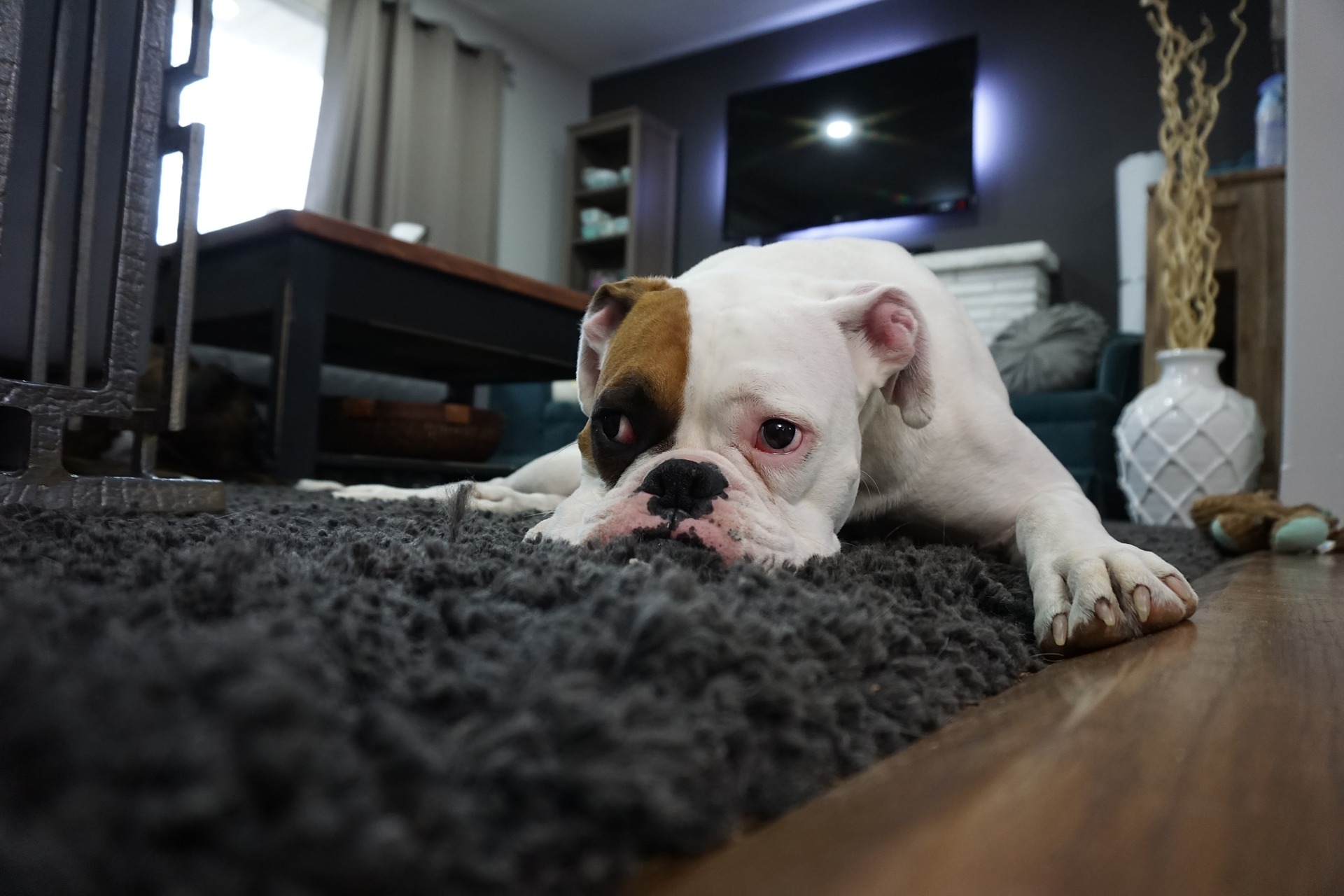Anyone who is a dog lover knows that they exhibit a full range of emotion. From the exuberant joy when we come through the front door to the stand-offish cold shoulder we get when we’ve been ignoring them – our dogs feel emotion just like humans do. Unfortunately, canine depression is a very real condition which can affect your dog, and as a loving pet parent, it is up to you to help them to deal with whatever is bothering them.
How do you know if your dog is depressed? There are a few telltale signs.

Warning Signs of Canine Depression
It is important to point out that most, if not all, of these warning signs can also be indicative of a physical problem. If your dog exhibits any of these behaviors, a good first course of action is a trip to the veterinarian. Once a physical explanation has been ruled out for their change in behavior, you can move on to the possibility of depression.
- Appetite Changes: If your dog suddenly stops eating their favorite food, the likelihood of something being wrong is high. Depression can cause your dog to stop eating altogether, and the chemical imbalance which may be causing the depression can also result in rapid and significant weight loss. Note that a depressed pooch can also respond in the opposite way. Canine depression can manifest with a dog eating all the food in sight, as it represents some form of comfort to him.
- Hiding or Being Anti-Social: If your normally friendly and loving dog begins to hide from you, avoid your presence, or refuse affection, they may be suffering from depression. Like humans, depression can cause marked changes in socialization levels and interaction, so keep an eye out for these changes.
- Altered Sleep Habits: Sleeping is another area where canine depression mimics the human equivalent. A depressed dog is likely to sleep a lot more often, even to the point of refusing to get out of their bed when their favorite human returns home. Too much sleeping is a variation of hiding or becoming anti-social, as the dog has no interest in engaging with anyone or anything around them.
- Excessive Licking: Dogs may lick their paws excessively if they are feeling sad and are trying to calm or soothe themselves. If combined with other behaviors, you are most likely dealing with depression.
What Causes Depression in Dogs?
As stated, there may be physical issues. A dog in chronic pain can become depressed – and can you blame them?
But depression may also be a result of separation anxiety. If your routine has recently changed and you are away from home more often, your dog may be experiencing sadness or even anxiety. They also may be reacting to a recent change in your household. For instance if someone important to them moves out, such as a child leaving for college. they may experience depression. A new puppy or new baby may also trigger the condition, as can a move to a new home which they are not familiar with.
After the vet visit rules out a physical condition and you have identified the likely source of the canine depression, you can react accordingly. Install a pet webcam to interact with your dog during the day if they miss you; provide a familiar space with favorite blankets and toys if you have a new house; or give them lots of attention if the new baby has them sad. If you need professional help, don’t be afraid to get it. After all, dogs bring us so much joy – we’d hate to think they are sad.
Gulf Coast K9 Dog Training is dedicated to the health, wellness nd happiness of your dog. IF you live in Sarasota, Bradenton or Lakewood Ranch and need help with your dogs training, obedience, or behavioral problems, give us a call.




